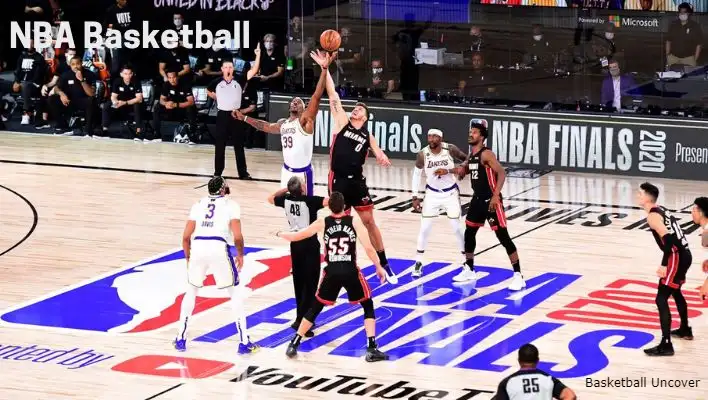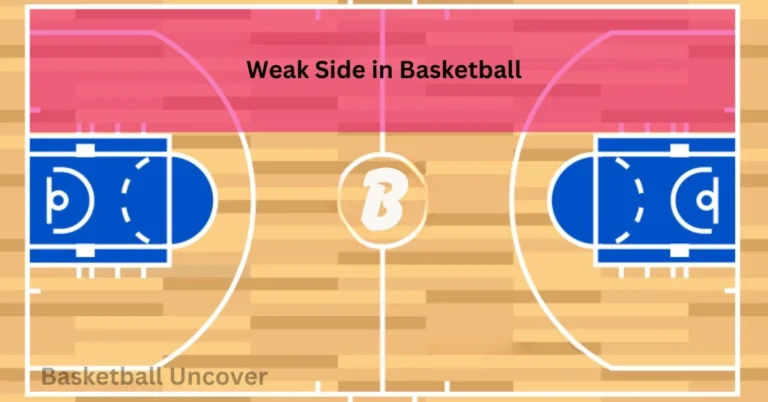What Are Bench Points In Basketball?
When it comes to bench points in basketball, the starting group and the star players who get all the attention get a lot of attention. But bench players are an essential part of any team’s success that is often ignored. We will talk about bench points, including what they are, why they are essential, and how they can affect how well a team plays.
It is easy to forget how important these unsung heroes are to the result of a game. One important thing they do is score bench points.
What Are Bench Points in Basketball?
Bench scoring, or bench points in basketball, refers to the total number of points scored by players who come off the bench, which means players who are substitutes and not in the starting group. These players are often called the “bench” or “second unit.”
Most basketball games have a set number of players who start the game. This is called the “starting lineup.” Some people think these are the best or most important players on the team. They are usually on the court when the game starts.
The coach may, however, make substitutions and bring in players from the bench during the game to give the starters a break or to give them a different set of skills.
Bench scoring is an important statistic because it shows how many points the players who don’t start contribute to the team’s total score.
A good bench-scoring performance can be very important to the success of a team because it gives them depth and helps them keep scoring even when their starters aren’t on the court.
It shows how useful the bench players are in terms of how much offense they add and how much energy they bring to the team.
How to Score a Bench Point in Basketball?
In basketball, to “score a bench” means to rate the work of the bench players based on how much they helped the team win. To help you understand how to score a bench in basketball.
Points scored
Most people can see that bench scoring is the number of points that players on the bench score during a game. This can be found by keeping track of how many points the players who come off the bench score.
It shows how well they score and how much they can add to the team’s overall score.
Time on the court
When scoring a bench, you should also consider how much playing time the bench players get. It’s essential to see how much they get done in the time they have.
You can figure this out by finding their points per minute (PPM) or points per possession (PPP). If the PPM or PPP is high, the bench players are affecting the game quickly.
Role and impact
When scoring a team, you should also think about what each player does and how they contribute. Some bench players may be good at things like stopping the offense, making three-point shots, or giving the team energy when they come off the bench.
When you look at their effect beyond just scoring, you can also look at things like rebounds, assists, steals, blocks, and how active they are on the court overall.
Team performance
Finally, scoring a bench should also consider the overall performance of a team when the bench players are in the game.
Checking how the team does when the starters are off and the bench players are on the field is very important. This means looking at how well the team does on offense and defense, how the ball moves, and how well the bench players work together on the floor.
Coaches, experts, and fans can figure out how much a bench player scores and how they affect the team as a whole by looking at these things.
The depth and power of a team can be seen in this, along with how well the bench unit contributes to the team’s success.
Time on the court
When scoring a bench, you should also think about how much playing time the bench players get. It’s important to see how much they get done in the time they have.
You can figure this out by finding their points per minute (PPM) or points per possession (PPP). If the PPM or PPP is high, the bench players are having an effect on the game quickly.
Significance of Bench Points in Basketball

Reduced Burden on Starters
When you have reliable scorers on the bench, your stars can rest and avoid getting tired, which can have a big effect on how well they play during the game, especially if it’s a close game or the playoffs.
This keeps players from getting hurt and lets them come back stronger and fresher.
It also makes players play more aggressively because they know they can be removed if needed.
Flexibility and Matchup Advantages
Coaches can change their approach depending on the opponent when they have strong bench players.
They can bring different skills and ways of playing, which lets the team take advantage of holes in the other team’s group.
This ability to adapt can be essential for winning close games and matches.
Sustained Performance and Momentum
When bench players consistently score or help the team in other ways, like by rebounding, playing defense, or giving passes, it keeps them in the game and from falling behind.
This is very important when the game is very close or when the leaders are struggling.
A good bench can help the team stay energized and interested in the game.
Psychological Impact
There are benefits for the whole team when they have a big bench.
The players feel good about themselves because they know they have vital backups who can help. This can help the team work together better and last longer.
Championship Aspirations
The vast majority of recent title teams have had strong bench units.
A lot of players and a strong bench have helped teams like the Golden State Warriors and the San Antonio Spurs become dynasties.
This is because all players, not just the starters, need to be consistent if you want to win at the top level.
History of Bench Point in Basketball
The idea of bench points in basketball has changed a lot over the years. The game’s strategy and focus on different player jobs have changed.
Early Days (1890s-1950s)
Changes: In the early days of basketball, teams usually only had five or six players, and changes were not expected. What this meant was that the players had to do more and get more points.
Lack of Statistics: There wasn’t much statistical tracking during this time, so it’s hard to get a good idea of how much the bench players contributed. That being said, it’s likely that they didn’t have a big effect on scores.
Rise of the Sixth Man (1960s-1980s)
Speed and scoring went up: As the game got faster and more offensive, teams started to rely on specialists and role players who came off the bench. This led to the rise of the “sixth man,” a crucial backup player who could score points and change the game on both ends of the court.
Statistical Focus: Box score figures, such as bench points, became more common, which helped people understand how well individuals and teams were doing.
Notable Bench Stars: John Havlicek, Bill Walton, and Kevin McHale stood out as great sixth men, showing how important it is to have a strong bench.
Era of Specialized Roles (1990s-Present)
Depth and Specialization: At this point in time, basketball teams use different players off the bench to fill different parts, like making plays, shooting three-pointers, and playing tough defense.
Strategic Use of the Bench: Coaches carefully plan rotations to get the most out of their bench, using reserves to match up with rival players or take advantage of their weaknesses.
High-Scoring Bench Units: Some teams, like the Phoenix Suns in 2006–07, have used bench scoring to build championship-caliber teams.
Records and Recognition: Bench points are now recognized statistics and records set for both individual and team scoring by substitutes.
Most Career Bench Points in NBA History
| Rank | Player | Team(s) | Points |
|---|---|---|---|
| 1 | Lou Williams | LA Clippers, Philadelphia 76ers, Toronto Raptors, Atlanta Hawks, Houston Rockets, Los Angeles Lakers, and Cleveland Cavaliers | 13,396 |
| 2 | Dell Curry | Charlotte Hornets | 12,282 |
| 3 | Jamal Crawford | Atlanta Hawks, New York Knicks, Chicago Bulls, Portland Trail Blazers, Los Angeles Clippers, Minnesota Timberwolves, Brooklyn Nets, Phoenix Suns | 12,097 |
| 4 | Manu Ginobili | San Antonio Spurs | 11,790 |
| 5 | Jerry West | Los Angeles Lakers | 10,139 |
| 6 | Jason Terry | Atlanta Hawks, Dallas Mavericks, Boston Celtics, Brooklyn Nets, Houston Rockets, Milwaukee Bucks | 9,629 |
| 7 | Rick Barry | San Francisco Warriors, Houston Rockets, and Golden State Warriors | 9,414 |
| 8 | Jamal Mashburn | Dallas Mavericks, Charlotte Hornets, Miami Heat, and New Orleans Hornets | 9,373 |
| 9 | Toni Kukoč | Chicago Bulls, Philadelphia 76ers, Atlanta Hawks, New Jersey Nets, Milwaukee Bucks | 9,263 |
| 10 | Leandro Barbosa | Phoenix Suns, Toronto Raptors, Indiana Pacers, Boston Celtics, and Golden State Warriors | 9,188 |

Most Team Bench Points in a Single NBA Game
| Rank | Date | Team | Points | Opponent |
| 1 | August 23, 2020 | Toronto Raptors | 100 | Brooklyn Nets |
| 2 | April 9, 2023 | Miami Heat | 111 | Orlando Magic |
| 3 | December 13, 1983 | Detroit Pistons | 94 | Denver Nuggets |
| 4 | April 14, 1990 | Phoenix Suns | 93 | Portland Trail Blazers |
| 5 | March 2, 1959 | Boston Celtics | 93 | New York Knicks |
FAQs
Keep a progressive tally of team scores, individual fouls, timeouts, and foul tally per game quarter. Children should ask for a sub and indicate this.
Benching in basketball involves placing players on the bench, typically as substitutes or reserves, for strategic reasons, allowing them to be brought back into play later.
Points off the bench in the NBA refer to the total points scored by substitute players, highlighting their offensive impact and contribution to the team’s overall point total.
Points in basketball represent a team’s scoring achieved through field goals, free throws, and fouls. The team with the highest total points wins, indicating their offensive effectiveness.
Conclusion
While the spotlight often shines on the stars, the contributions from the bench cannot be understated. Bench points are a valuable testament to the teamwork, dedication, and strategic depth that contribute to a winning team.
The next time you watch a basketball game, pay attention not just to the starters but also to the impact made by the players who come off the bench to leave their mark on the score and the outcome of the game.







